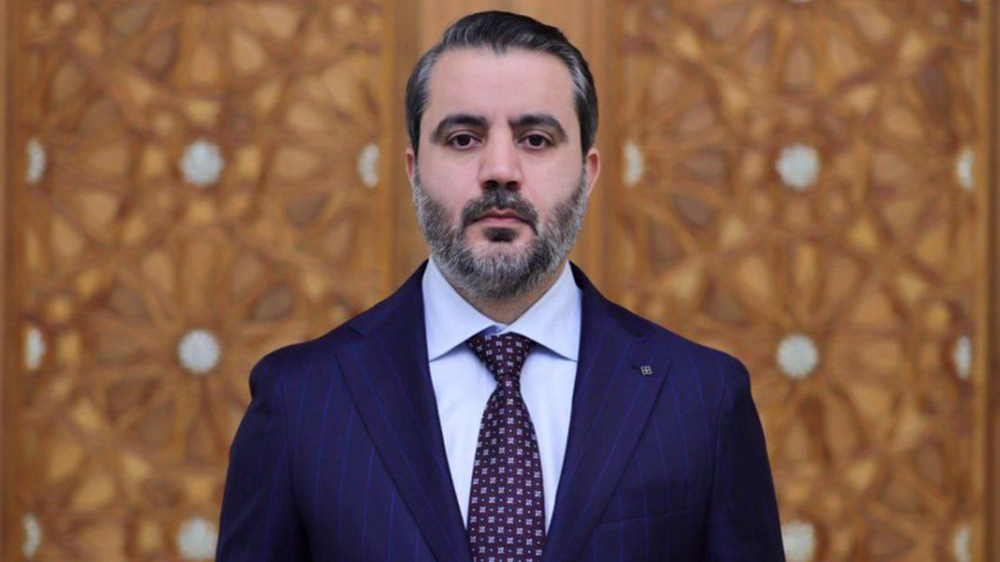Turkish forces set up military post southwest of Syria's Aleppo
Turkish forces have set up a military post southwest of the Syrian city of Aleppo as part of the Astana agreement with Iran and Russia on “de-escalation zones.”
The Turkish military said in a statement on Monday that there were plans to begin reconnaissance work on establishing two more observation posts inside northwest Syria.
The so-called Syrian Observatory for Human Rights (SOHR) said the new Turkish observation post was near the village of El-Ais.
Under the deal between Ankara, Moscow and Tehran aimed at reducing violence, Turkey agreed to set up a dozen observation posts in Idlib and neighboring provinces.
In mid-September last year, Russia, Iran, and Turkey, which together act as guarantor states in peace talks for Syria, agreed on the details of four “de-escalation zones” in the Arab country, including in Idlib, during peace talks in the Kazakh capital Astana.
The de-escalation zones are aimed at separating extremist groups, including Daesh and Jabhat Fatah al-Sham -- formerly known as al-Nusra Front -- from other militants.
The northwestern province of Idlib, which borders Turkey and is largely under the control of al-Nusra Front militants, is one of the last main strongholds of Takfiri militants opposed to Syrian President Bashar al-Assad, who have been driven from most of their bastions across Syria in recent years.
In December, Syrian government forces launched a major offensive to take territory from militants in Idlib.
Under Russian air cover, the Syrian forces have been making significant gains against the Takfiri terrorist groups around the province.
Russian jets intensified raids on Sunday against militant-held towns in Idlib, after terrorists shot down a Russian warplane and killed its pilot on Saturday.
Last month, Syrian forces totally liberated the strategic military airbase of Abu al-Duhur in Idlib, wresting full control over the key airbase after flushing out militants from the area.
The latest announcement by the Turkish military comes as Ankara pushes ahead with its offensive against Kurdish militants supported by the United States in Syria.
Turkey launched the so-called Operation Olive Branch in Syria’s Kurdish-controlled northwestern region of Afrin on January 20 in a bid to eliminate the Kurdish People's Protection Units (YPG), which Ankara views as a terror organization and the Syrian branch of the outlawed Kurdistan Workers' Party (PKK).
The YPG forms the backbone of the so-called Syrian Democratic Forces (SDF), a US-backed anti-Damascus militant group.
Operation Olive Branch in Afrin is Turkey's second major military intervention in Syria since early 2011.
In August 2016, Turkey began a unilateral military intervention in northern Syria, code-named Operation Euphrates Shield, sending tanks and warplanes across the border. Ankara claimed that its campaign was aimed at pushing Daesh from Turkey's border with Syria and stopping the advance of Kurdish forces, who were themselves fighting Daesh.
Turkey ended its campaign in northern Syria in March 2017, but at the time did not rule out the possibility of yet another act of military offensive inside the Arab country.
VIDEO | Iran’s Leader receives eulogists on Hazrat Fatima birth anniv.
VIDEO | Israel continues to bomb Gaza homes
‘All wars have rules. All of those rules have been broken’ by Israel
VIDEO | Report flags India’s violation of rights of Rohingya detainees
Turkey's foreign minister meets Syria's de facto leader in Damascus
VIDEO | US Syria plots
'Next to impossible' to rescue patients from Gaza's Kamal Adwan Hospital: Director
VIDEO | Vietnam current prosperity












 This makes it easy to access the Press TV website
This makes it easy to access the Press TV website